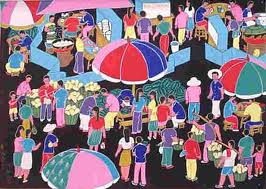This article was written by the Rev. Resa Eileen Raven and published for the first time in March 2010 in a blog entitled “Ravings from the Rev”:
Last month Newsweek contained an interesting article that was called “May the Best Theory Win: How Economists Are Competing to Make Sense of Our Failed Financial System.” Basically the article was about how none of our existing belief systems can account for the current economic climate. They all are short of the mark, leaving those of us trying to weather the economy massively confused and frightened, and decision-makers clueless about how to get us out of the slump.
I always like it when the powers-to-be can honestly admit their ignorance, but the thing that really caught my eye was the article’s characterization of economists as doing a lot of “soul-searching.”
“Soul searching”–what an interesting choice of words. Maybe it is a stereotype of mine but I don’t think of economists as having much interest in or knowledge about soul. And yet. . .soul really is what is going on right now in regard to the economy.
To be fair, I don’t think those of us who have interested in soul for our part have had a lot of interest in the economy. There is a reason why Jesus of Nazareth talked about it being harder for a camel to go through the eye of a needle than a rich man to get into Heaven. . .and why, when he threw his one and only hissy fit of record, it was directed at a marketplace. Spiritually, you can lose yourself very easily if you get caught up in the exchange of money for goods and services. For many of us truly committed to our spirituality, focusing on money hasn’t been worth the risk. But I believe that this is the time for those of us who value the spiritual path to also learn to pay attention to economic issues, if for no other reason than to put them in their proper place.
For nearly two million years, human beings were tribal, nomadic, and completely preoccupied with survival in an immediate sense. It was primarily with the rise of early human civilizations some 8000 years ago, when we transformed from hunters/gatherers, that we developed the first “economies.” Farming the land, domesticating animals, constructing salt mines to preserve food, all these allowed people to have more than they needed at times, to accumulate “wealth.” Folks could then trade with people outside of their own family/clan/tribe. Agricultural-based societies always eventually created a marketplace where people could swap things they did not want or need, with other things their neighbors offered.
This production of “wealth” came with advantages and disadvantages. It had the obvious benefit of accumulating enough to meet the basics of life and a little extra to make life sweeter. It allowed individuals to exercise their God-given creativity. But it also provided opportunities for some to exercise greed, and/or exert control over their neighbors through the granting or withholding of resources, in a way that would not have been as tolerated in a more collectivistic hunter/gatherer society.
Anthropologists tell us that hunter/gatherer societies are almost always egalitarian in structure, whereas agricultural/industrial societies organize their members hierarchically. Counsels of elders and clan leaders eventually gave way to leadership by warlords and theocratic/civil governments who had the authority to intervene in human life but were often far removed from the real consequences of those interventions. Whoever held the political reins could advance their economic interests to the detriment of others not in power, and they could do so without having to see, feel or hear from the people affected by their decisions.
For example, in 200 BCE, when the feudal kingdoms of China were united into one country, making China arguably the most advanced civilization on Earth at the time, its rulers could declare that all the iron and salt in the land belonged to them because they had to build a Great Wall to keep out the Huns. Businesses that needed iron had to pay exorbitant prices for it, forcing hundreds to lose their livelihood; and thousands of people who couldn’t afford the salt tax and therefore had no way of preserving food for the winter, were left to starve. This is one of the first of many examples of price-fixing and government monopolies leading to real suffering by those not at the top of the hierarchy.
So what has this got to do with the economy today? Understand that there is a lot of history here, a lot of energy that has gone into our current economic dilemmas. We’ve been lost for a long time. For thousands of years, 8000 more or less, we’ve increasingly based our lifestyles, our political structures and our marketplaces on the acquisition of wealth and the physically-based needs that it can feed: glory, power, status, and hedonistic pursuits. Fair exchanges of goods and services in order to share with each other, has been an increasingly rare experience.
We’ve largely squandered the Earth’s once abundant resources, and have tried God’s patience enormously. During this time of great balancing, there is a lot to put right. And a lot of new ways of thinking will be required.
Copyright 2010 Rev. Resa Eileen Raven



You must be logged in to post a comment.